#541 Co-opting the food chain
April 30th, 2019

The Co-op Revolution: Vancouver’s Search For Food Alternatives
by Jan DeGrass, with a foreword by Rick Scott
Halfmoon Bay: Caitlin Press, 2019
$24.95 / 9781987915952
Grocery Story: The Promise of Food Co-ops in the Age of Grocery Giants
by Jon Steinman
Gabriola: New Society Publishers, 2019
$19.99 / 9780865719071
Both books reviewed by Grahame Ware
*
Two young university graduates from Ontario, Jan DeGrass (University of Waterloo) and Jon Steinman (University of Guelph) came to British Columbia a generation apart — in 1975 and 2004 — to join and eventually help define food co-ops in Vancouver and Nelson.
Here, Grahame Ware reviews their books, one set in Vancouver and one originating in Nelson, and notes that the youth of today, “who might feel like round pegs in the square holes of society, might well turn to a cooperative model as a way of doing things better.” – Ed.
*
As a recent graduate of the University of Waterloo, Jan DeGrass acquired a taste for what co-ops could do. In the summer of 1975, soon after graduation, she hitchhiked to the west coast and found a job working for Tunnel Canary Cannery, a real fruit company in North Vancouver that used honey instead of sugar in their jams.
A large part of her book, The Co-op Revolution: Vancouver’s Search For Food Alternatives, is about the politics and organization of her co-op and its head co-op, the Collective Resources and Services Workers’ Co-operative, (CRS), founded in 1975.
DeGrass explains the book’s specific and personal genesis. She had her nose put out of joint by a younger CRS co-op worker sporting a T-shirt from a summer picnic that celebrated the 25th anniversary of CRS in 2000. As a founding member, she was ticked off that she hadn’t been invited to the picnic, and she was really (her emphasis) miffed because the anniversary picnic was held in the summer, and not in the winter, when it started. “That’s not what I remember,” DeGrass states. From here, DeGrass pivots into an account of her involvement with the embryonic beginnings of the CRS and, in particular, the Tunnel Canary Cannery.
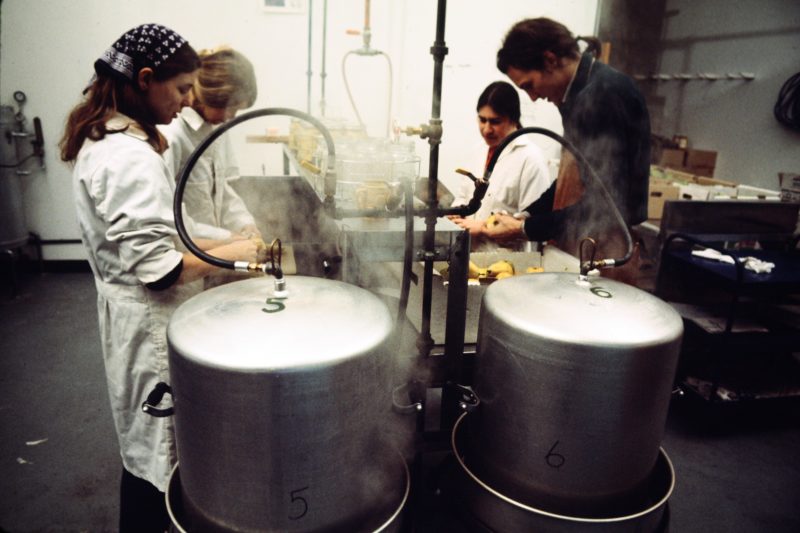
L-R: Jan DeGrass, unidentified, Ros Breckner, and Roger Inman processing pears at Tunnel Canary Cannery, 1975
“Education, entertainment and stimulating conversation were always on hand with my lively co-workers,” she recalls. “We were performing socially useful work. We were not misguided hippies — we were on the right path. It was the rest of the world that was screwed up” (p. 9).
Meetings and dedication coupled with equal measures of hard work and naivety finally combined to drive her away from direct involvement. Nonetheless, she has the fondness — and the wounds — from her work in the cooperative movement to motivate her to tell a story that will be useful for historians of the cooperative movement in B.C. Despite her championing for the CRS and cooperative ideals generally in the late seventies, her book is ultimately a story of a variegated Pyrrhic victory: of having won a battle but lost the war.
The battle in this case was for a viable business, CRS Co-op. Through its collective efforts, it became a force in the acquisition and distribution of health foods – until it was acquired, in turn, by a capitalist, Ron (Ronald J.) Francisco, CEO of Calgary-based Planet Organic Health Corp., which then morphed into a health food distribution behemoth.
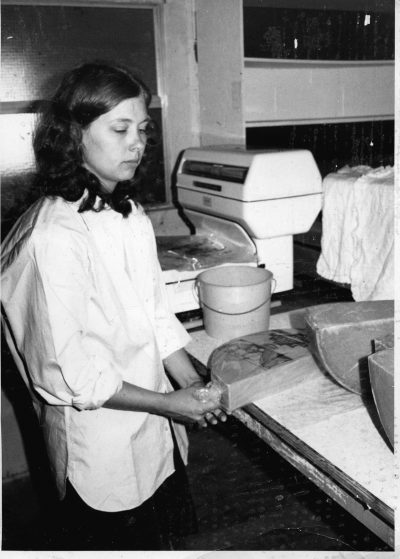
Portrait of the author as a young cheese-cutter. Jan DeGrass at CRS cutting 90 lb. rounds into wedges for shipping to co-ops, c1976
Would CRS’s status as a force to be reckoned with in the health food sphere have emerged had it remained under-capitalized within its original structure and management? This is highly unlikely. However, DeGrass feels it might have survived in some form and found a comfortable niche. In a critical passage she relates what really unsettled her:
As I recall, I was disenchanted with CRS Workers’ Co-op at the time as a result of a December 15, 1978, annual general meeting that explored a divisive issue—the allocation of surplus. The surpluses in question were for the years 1977 ($17,337) and 1978 ($39,730). In a lengthy and unsigned financial report it appeared that the decision had already been made to allocate the 1977 surplus to management as a bonus. The 1978 surplus could be retained by the co-op or allocated as a bonus to the workers. Though the financial report recommended that the workers receive a bonus, the mood of the meeting swung toward retaining the surplus within the co-op.
And she continues:
The division of management and workers vying for the same pot of money was unsettling for me — it did not respect the spirit of kickbacks, the money we had taken from our salaries (when we had grant funding) and loaned to the business from us, the original workers. It became clear that we would never see those loans returned to the individuals who had made them. Granted, it had never been promised that we would see the money again, but nonetheless it was disappointing. The ultimate decision to retain surplus was for the good of the co-op, and it was likely the right decision in the long run, but I came away disgruntled, knowing that I would have to continue my secretarial job in order to generate necessary income (p. 132).
Her office job with BC Assessment didn’t last long because of what she characterizes, candidly, as her own arrogance (p. 133).
DeGrass’s conflicted notions and ideals continue to manifest themselves throughout The Co-op Revolution, making me hope to find a distilled pot of gold at the end of her writing rainbow. Alas, for me there wasn’t one.
Later, the Damoclean sword fell from the CRS ceiling. “We closed arrangements in November 1998 for the sale of CRS Holdings,” recalls Terri Newell, a CRS manager who transitioned to Horizon. It was a difficult time. “We didn’t sell the co-op for a grand profit and then divvy it up,” Newell continues. “We had grown too fast to finance ourselves. The credit union was breathing on us.”
DeGrass picks up the thread:
Money from Francisco’s purchase was paid out to the shareholders and to the recent investors, and a portion amounting to $125,000 was sent to CCEC Credit Union to support other co-operative projects. The Canadian Worker Co-op Federation, a national grassroots organization that supports the development of workers’ co-ops, also received $75,000 of the money. The Co-op Act was changed in 2000 to enable co-ops to sell multiple classes of shares, which would allow outsiders to invest in a co-op. Would this ability have changed the picture for CRS if it had been enacted earlier? Possibly. We’ll never know (pp. 152-53).
But I think we do know. CRS management were in over their heads in that they didn’t have the right attitude or posture to thrive in a world in which they had to compete. In other words, they weren’t capitalists who wake up every morning and put some scorched-earth sugar — along with a dollop of “kill the opposition” cream — in their espressos just to get themselves in the right mood.
So where are things at right now with Ron Francisco and the Horizon Group, inheritors of the CRS collective? They have gone far by building on the foundations of the CRS ideal — and ultimately on the backs of workers who in a bygone era plunked down $100 for a share, took voluntary pay cuts, and generally sacrificed their personal prosperity for the larger cooperative good. The website of the Horizon Group reveals their extensive business:
Horizon Distributors is the cornerstone of the Horizon Group, a privately held, Canadian owned group of companies with distribution facilities servicing customers across Canada. Each subsidiary carries national brands and regionally unique products across a varied mix of organic and natural food, natural body care and nutritional health supplements.
Horizon Group includes eight natural and organic food companies and distributors, ranging from PSC Natural Foods in Victoria to Directa Distribution in Pointe-Claire, QC. Horizon services 1,800 locations annually including Whole Foods Market, Overwaitea Food Group (Save On Foods, Urban Fare, Overwaitea Foods, PriceSmart Foods and Cooper’s Foods), Natural Markets Food Group (Planet Organic Markets and Mrs. Green’s Markets), Buy-Low Foods (including Nester’s Market, Shop n’Save and Budget Foods), as well as 200 Safeway locations.
Not bad for an outfit with its origins in the cooperative and idealistic principles of the 1970s counterculture.
Obviously, co-ops as a vehicle for many things are still doing well. One, in particular, that comes to mind is the Kootenay Co-op in Nelson; but the West Kootenays pale in comparison to many parts of Italy, where co-ops, mainly in agriculture and food, are responsible for up to half the Gross Domestic Product. B.C. itself has a healthy co-op tradition. According to Small Business BC, “In all, there are around 700 co-op businesses operating in British Columbia, with 26 created in 2016 alone.” The BC Co-operative Association puts total membership of BC co-operatives at over two million people who, collectively, “control more than $48 billion in assets through ownership of their co-ops.”[1]
While there has indeed been some kind of co-op revolution (as in the book’s title), on the west coast since the seventies, I don’t see DeGrass’s book so much as about that “revolution” as an earnest and cautionary tale of one person’s experience with a specific co-op that went sideways. Certainly it should not deter the youth of today who might feel like round pegs in the square holes of society. If so, they might well turn to a cooperative model as a way of doing things better. Fortunately, today’s youth are more business savvy and have less shame about money than previous generations. This can be both a blessing and curse.
Mainly a personal story, The Co-op Revolution lacks, to my reading, a compelling narrative and fails to paint a bigger picture of the co-op movement or to provide a larger historical context. In addition, the few personalities in the book emerge, well, as mere personalities and not more rounded characters. But for DeGrass, the whole frustrating experience made her dig deeper into herself and find what she really wanted to do, and where she wanted to do it. The CRS may have failed her but I don’t believe that she should be sad about it. This wasn’t an easy story to tell and I applaud Jan DeGrass for having the courage to tell it.

Uprising Breads as it looks today, still at the corner of Venables and Commercial in Vancouver. Photo courtesy Jan DeGrass
*
The second book reviewed here, Jon Steinman’s Grocery Story: The Promise of Food Co-ops in the Age of Grocery Giants, has its origins some 660 km (410 miles) east of Vancouver.
Unless you’ve been living under a moss-covered Lower Mainland rock this past decade, you will have heard of the charismatic Jon Steinman. If memory serves you well, you’ll recall numerous articles and podcasts in The Tyee in 2008, when Toronto-born Steinman became a go-to guy in all things regarding the production of food. This was during his “Deconstructing Dinner” project, which began as a weekly radio written and hosted by Steinman on Kootenay Co-op Radio – CJLY – between 2006 and 2010. “Deconstructing Dinner” was nominated for a Jack Webster Award on two occasions.
In 2013, Jon became the writer and host of the television and web series “Deconstructing Dinner: Reconstructing our Food System.” Six episodes were broadcast with Steinman doing the heavy lifting as the writer/ producer and presenter. Produced for ichannel, it was available to online audiences. As a podcast, it leapfrogged the borders of the Kootenays and was broadcast on fifty co-op and campus radio stations across the continent to become the most popular food podcast in Canada.
 Deconstructing Dinner then spawned a yearly film festival, based in Nelson and held in the early fall since 2012. It makes one wonder what will be next facet cut from the Deconstructing Dinner diamond.
Deconstructing Dinner then spawned a yearly film festival, based in Nelson and held in the early fall since 2012. It makes one wonder what will be next facet cut from the Deconstructing Dinner diamond.
Steinman’s young man’s passion about food systems arose from his professional training in the commercial side of food production. At the University of Guelph, he studied hotel and restaurant management. Subsequently, he worked for a chef who employed a wild-crafter and a forager to supply restaurants with local products from farms and forests.
Since arriving in Nelson in 2004, Steinman has brought an incisive professionalism to the myriad aspects of food production and supply and to finding ways to help cooperatives organize themselves out of the corporate box. Despite all of these creative and critical activities, he also served as the Board President for the Kootenay Co-op from 2014-16. Starting from Nelson in April 2019, he will visit 48 cities in North America to promote Grocery Store before returning to Nelson in mid-July Steinman is one very energetic and focused individual. Oh, and he’s just 39 years old!
Built up over many years with his Deconstructing Dinner podcast and video streaming series, the content of Grocery Story takes the book far beyond some quickie compilation on the food co-op movement and business. “Five years and 193 episodes later,” he writes, “and with 50 US and Canadian radio stations rebroadcasting the weekly show, I gained a perspective on the food system that few journalists had at the time” (p. 4).
With many useful charts and graphics, Grocery Store is well-researched and historically solid journalism from someone who knows his onions, a book chock-a-block with both contemporary and historical information. Steinman notes, for example, that the Sointula Co-op Store, founded at the Finnish settlement on Malcolm Island in 1909, “remains the longest-running cooperative in Western Canada and the longest running food cooperative in North America” (p. 110).
Steinman also outlines social issues such as the abuse of the label “local” by Big Grocery. He details alleged abuse by Save-On Foods of their Western Family brand hamburger patties. Under a federal law, in 2013 Ottawa changed the definition of what could be considered local. Meat from Alberta could be shipped west to Vancouver for processing and then sent back east to Nelson and called local! This practice led to a protest by the Kootenay Co-op, the local Kootenay MP, and the president of the National Farm Workers Union. They wanted a more meaningful definition and came up with the designation “True Local.” The Kootenay Co-op regulated itself, and in 2018 paid $2.6 million to True Local suppliers (pp. 178-79). You can see Steinman’s investigative piece on local food fraud here.
Steinman includes a good deal of humour to keep you turning the pages, such as the humble origins of the Buffalo Mountain Co-op in Hardwick, Vermont, which started out by sharing a roof with a gun shop and liquor store. “Under one roof you could purchase a pistol, a pint of Jim Beam and a pound of tofu,” recalled founding member Annie Gaillard (p. 121).
From Grocery Story one gets the sense that nothing can stop Steinman’s work and energy at the grassroots level. The book instantly anoints him as a champion of food co-ops. A social leader, he ultimately succeeds in convincing the reader that the accountability and ecological transparency of food systems are key issues for the future. His work and writing are rigorous, compelling, and inspiring.
Grocery Story, as my English friends would say, is an absolute cracker of a book on local and co-op food systems. Steinman’s experience and passion make for a terrific read from someone who deserves to be heard. He asserts in his dedication that the book is “For the next seven generations” — a bold prediction, but I agree that this book will be around for a long time. Are you a member of a food co-op? If not, after you read this book, you will be!
*
Grahame Ware has been an organic gardener ever since he read Rodale’s classic book, The Encyclopedia of Organic Gardening in about 1970, which inspired him to turn on as many people as he could to organic gardening. In 1975 he grew and sold 250 pounds of his organic tomatoes from the North Okanagan to the East End Co-op in Vancouver. In the late 80s, he worked at Dominion Seedhouse where he trialled vegetables and updated their catalogue. In 1989 he produced the first seed catalogue for Pacific Northwest Seeds in Vernon. Later, as a specialist in ornamental grasses and native seeds, he started Natural Legacy, his own seedco. He taught horticulture in the Continuing Education program at Okanagan College and had a thriving landscape business specializing in xeriscapes and rock gardens. Author of numerous articles in top horticultural journals around the world, including the Royal Horticultural Society’s The Plantsman, he is also author of Heucheras and Heucherellas: Coral Bells and Foamy Bells (Timber Press, 2005, with Dan Helms). He lives on Gabriola Island where he devotes his time to wood carving/ sculpture, www.phantasma.ca; to his blog, http://oldcelluloselips.blogspot.com/ and, of course, to writing and gardening.
*
The Ormsby Review. More Books. More Reviews. More Often.
Editor/Designer/Writer: Richard Mackie
Publisher/Writer: Alan Twigg
The Ormsby Review is a journal service for serious coverage of B.C. books and authors, hosted by Simon Fraser University. The Advisory Board consists of Jean Barman, Robin Fisher, Cole Harris, Wade Davis, Hugh Johnston, Patricia Roy, David Stouck, and Graeme Wynn. Scholarly Patron: SFU Graduate Liberal Studies. Honorary Patron: Yosef Wosk. As of September, 2018, Provincial Government Patron: Creative BC
“Only connect.” – E.M. Forster
Endnotes:
[1] https://smallbusinessbc.ca/article/introduction-co-ops

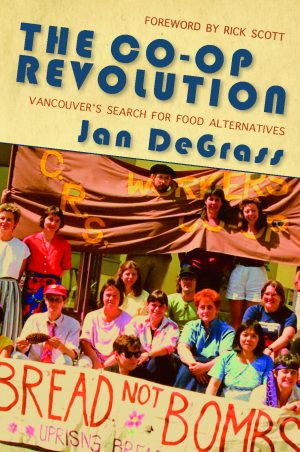
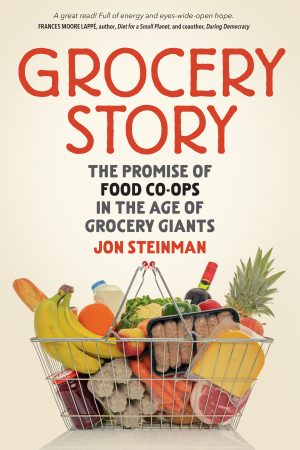

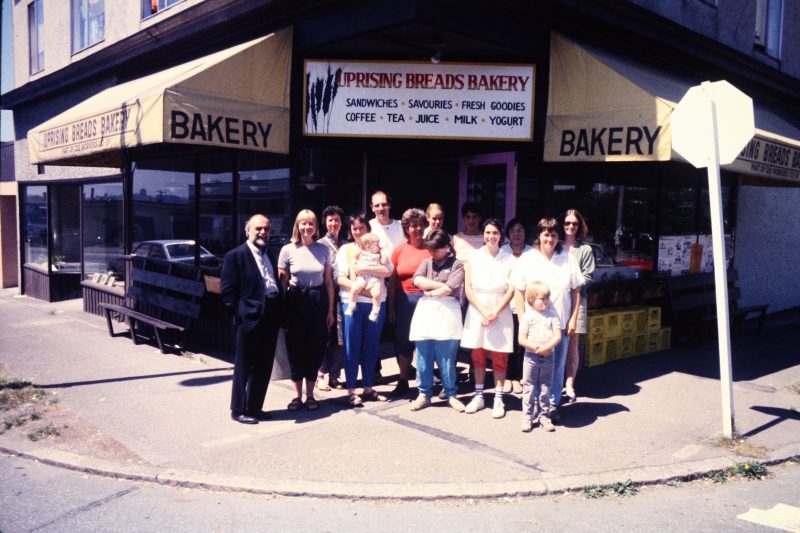


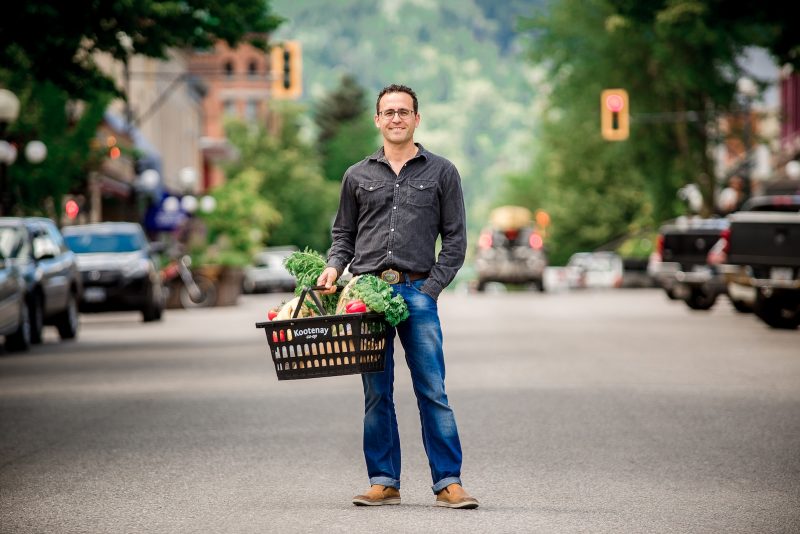
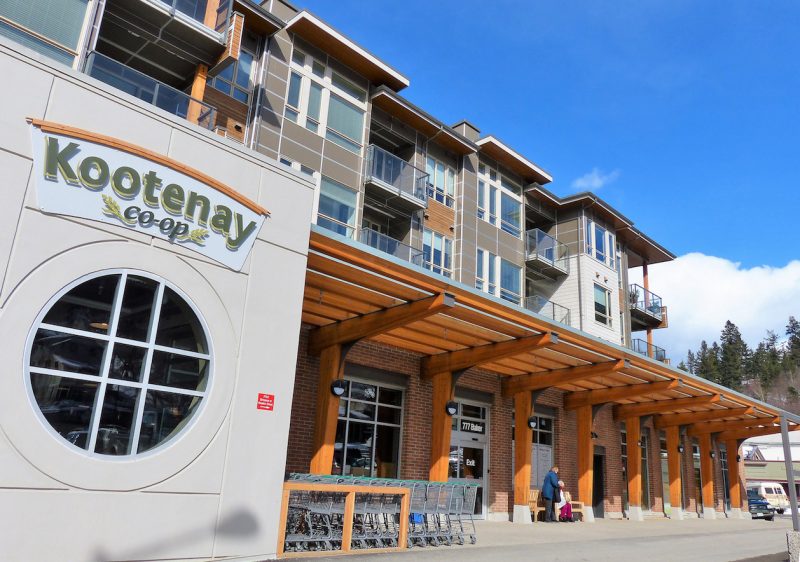
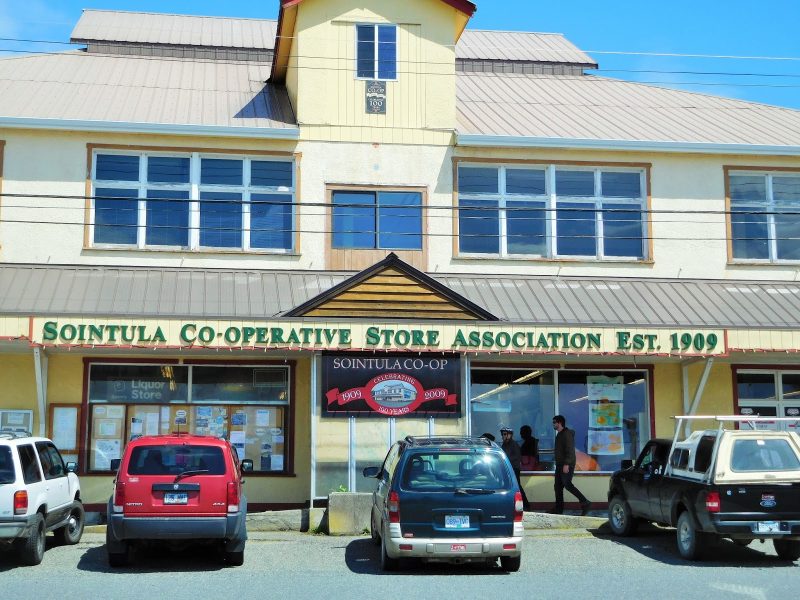



Leave a Reply